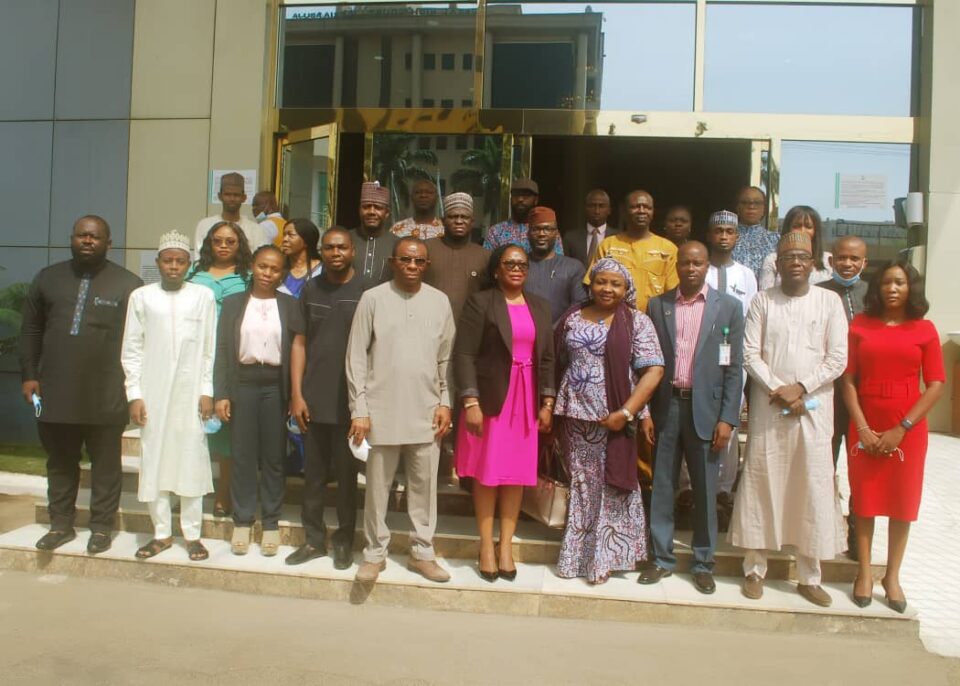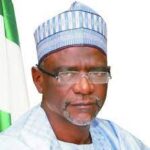Chuks Oyema-Aziken
The Federal Government and stakeholders have met to enable the implementation of the outcomes of COP26 in Glasgow, Scotland and begin preparations for COP27.
The meeting in Abuja is also to initiate activities for the implementation of Nigeria’s Nationally Determined Contributions (NDC) and Energy Transition Plan in line with Mr. President’s commitment to meet with the net zero target by 2060.
The meeting of the Technical Working Group of the Interministerial Committee on Climate Change was organized by the Department of Climate Change, DCC, Federal Ministry of Environment.
Sequel to COP26 and the adoption of the Glasgow Climate Pact, Parties are expected to increase national climate ambition and action as well as set out new rules to reduce greenhouse gas emissions.
In his opening remarks, the Permanent Secretary, Federal Ministry of Environment, Engr. Hassan Musa noted that the energy sector is very strategic to the development of the Nigerian economy.
In the speech read on his behalf bythe Director, Department of Climate Change, Dr. Iniobong Abiola-Awe, the Permanent Secretary said the energy sector aids in reducing poverty, improving productivity, enhancing the general quality of life as well as climate change mitigation and environmental sustainability.
“The time is right for us as policy makers to reappraise our approach on our energy sector priorities, as we concurrently focus on energy security and climate change issues resulting from the inefficient and incomplete combustion of traditional biomass.”
In her welcome remark, Dr. Abiola-Awe emphasized the need to build capacity of relevant stakeholders on the NDC Implementation Plan and the Energy Transition Plan and also to have discussions around the implementation of COP26 outcomes.
She disclosed that the meeting precedes the high-level meeting which would take place on 7th March, 2022.
During the Technical Session, papers were presented on the National Roadmap on the Implementation of Post COP26 Outcomes; The Climate Promise: Phase II; 2021 NDC: Update and Implementation Plan; and The Energy Transition Plan: Prospects and Implementation Plan.
The presentations in line with the meeting objective covered a wide range of relevant information which equipped participants with needed capacity to deliver on submission of inputs for the NDC Implementation Plan and the Energy Transition Plan.
As a way forward, the meeting agreed on a National Roadmap on the Implementation of Post COP26 Outcomes.
The roadmap states “The need to build a robust roadmap towards the implementation of climate change activities ahead of COPP27; To ratchet up Nigeria’s data collection, storage and management, develop robust and enhanced GHG inventory data for reporting and transparency and to build MRV capacity; To mainstream Climate Change into the National Development plan; FINANCE – Post 2025 Climate Finance Goals: To pay attention on how to scaleup, generate climate finance from multiple sources such as: Climate Investment Fund, Adaptation Fund.
Others include need to build capacity for Climate Finance, Carbon Trading and in critical areas of Nigeria’s priority sectors.
“Considering lack of bankable projects, as the absence of a national platform to develop projects for negotiation, there is a need to access funding opportunities and options and to develop a lot of climate investment plans linked to our priorities sectors, therefore the need to develop CF MRV system.
“To adopt nature-based solutions and use vast experts of natural resources to help in mitigating while claiming carbon credit.
“Article 6 – To get into opportunities for carbon markets.
“Innovation – To conceptualize Climate Change as a problem requiring radical innovation to come up with indigenous solutions.
“Education and Awareness – the need to carry youths along and get Climate Change into Schools to build awareness.
“A substantially large volume of information is available which improves both the estimates of total GHG emissions (historical and baseline projection) and GHG mitigation potential of particular reduction measures – (Enhanced Energy Balance & Forest Reference Emissions Level report validated by the UNFCCC.
“The country updated the base year for the GHG assessment from 2010-2018; GHG mitigation assessment has been expanded to cover 11 pollutants in total including short-lived climate pollutants (black carbon).
“Updated NDC mainstream gender across the sectors based on the National Action Plan on Gender and Climate (2021).
“Enhanced contribution of the waste sector included in the updated NDC; covers Water resources sector and articulates other nature-based solutions (not included in 2015).
“A Whole-of Society Approach was adopted in development of the NDC (collaborative and inclusive) –stakeholders’ engagement with private sector, CSOs, NASS, women groups, youth, MDAs, sub-national entities and all information validated by MDAs
“Over 30 workstreams that included stakeholders’ workshops, validation meetings to endorse all technical products used for the NDC.
“Nigeria has raised its ambition in the 2021 NDC by increasing its conditional contribution and including emissions from waste sector.
“The NDC has an unconditional contribution of 20% below business-as-usual by 2030 & 47% conditional on international support;
“Note: Committing to this level of climate ambition in the face of lower-than–expected economic growth represents a significant enhancement, as it results in substantially lower absolute GHG than stated in 2015.
“The scale of emissions reduction –a 47% conditional contribution below 2018 levels is consistent with a global 1.5oC pathway.
“Climate Action Tracker: rates Nigeria’s conditional target as “Almost sufficient” when compared to modelled domestic pathways; and its unconditional targets as “1.5oC Paris Agreement compatible” when compared to its fair share contribution (www.climateactiontracker.org).
“Mobilizing of requisite international support and private sector investment would enable Nigeria to peak GHG emissions peak this decade.
“2021 NDC: Update and Implementation Plan – Next StepsICCC/MDAs to identify priority projects that will be included in the NDC Implementation Plan and the Climate Promise 2.
“DCC to undertake a stock-take on all activities and projects ongoing and implemented across sectors to date; 2050 Pathway formulating the Low Emission Development Strategy (LEDS) and aligning with the Deep Decarbonization Programme towards the net-zero targets.
“Development of an Implementation Plan and readiness plan for the ETP.
“Adoption of a robust Investment Plan that will ensure requisite investments for the NDC
“Considering the Transition to Clean Energy in Nigeria, especially starting from oil & Gas and drawing from the National Policy on Methanol Fuel Production Technology, from the Federal Ministry of Science and Technology, there is need to use our natural resources to add value to Nigerian economy.
“Cognisance of energy choices in the implementation of Nigeria’s Energy Transition Plan is required.”



